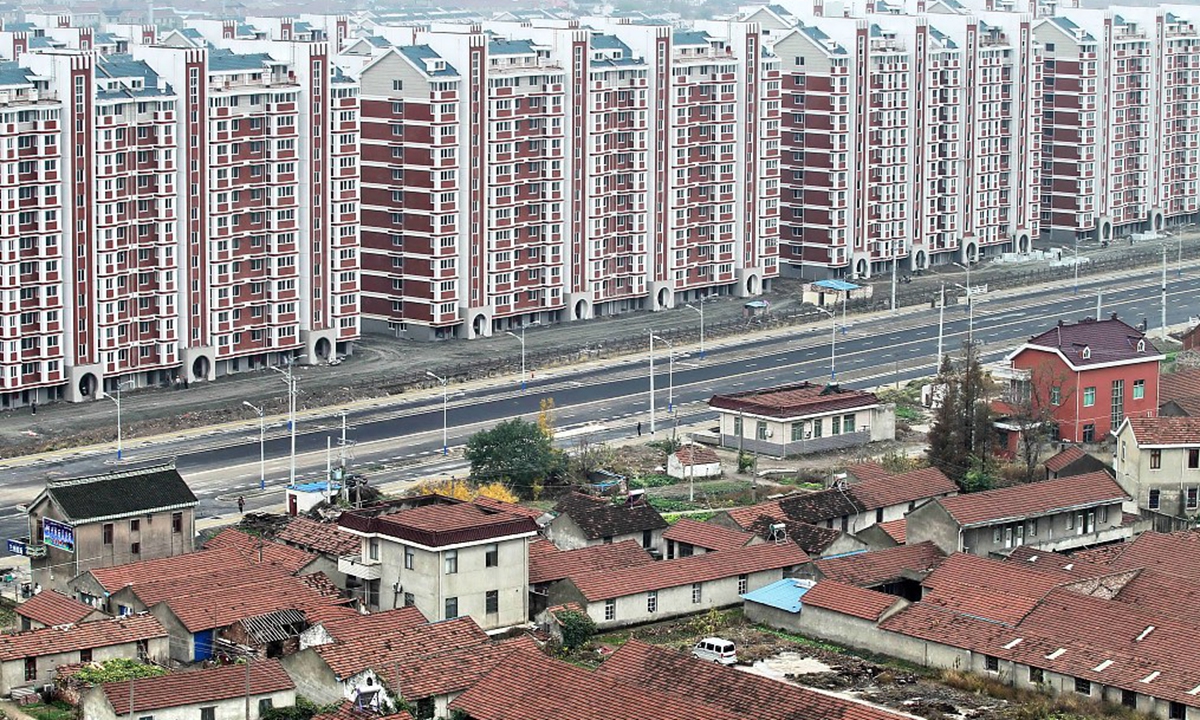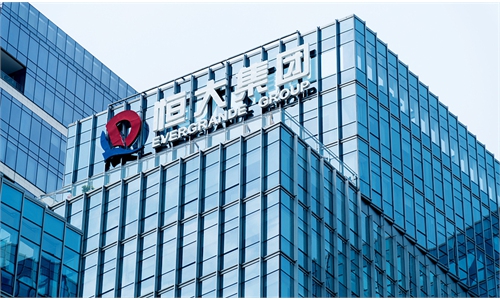
Housing market Photo:VCG
China's housing market remains basically stable and will not significantly affect the country's economic growth, a senior official from the National Bureau of Statistics (NBS) said on Monday.
China's property development is being stabilized as authorities implement measures such as improving the long-term operation of the housing market, suppressing excessive demand, ensuring demand and supply are well balanced, and limiting the unchecked expansion of real estate enterprises fueled by raising debts, NBS spokesperson Fu Linghui said on Monday
Fu noted that as the added value of real estate increased by an average of 4.8 percent over the past two years, down 1.3 percentage points from the first half of 2021, the overall impact of real estate on China's economic growth is limited.
China's central bank on Friday said the spillover effects of Chinese property developer Evergrande Group's liquidity crisis are controllable, the first public statement made by the bank since the company was summoned by the regulator in August.
Zou Lan, head of financial markets at the People's Bank of China, said at a briefing last week that Evergrande Group's case is an isolated case, and the domestic real estate market has maintained stable land and housing prices, built on macro-control of the real estate sector over recent years.
Evergrande Group has been bogged down in a liquidity crisis which is reportedly facing $300 billion liabilities, failing to pay overdue bills and imposing lengthy repayment delays on holders of wealth management products.
China's property shares fell slightly on Tuesday at closing, the real estate index under Shanghai Composite Index had decreased by 1.13 percent. The share price of Evergrande Group fell 3.91 percent, the stock price of Shenzhen-listed Jinke Property Group Co dropped 0.21 percent and Shanghai-listed Seazen Holdings Co fell 2.33 percent.
Fu emphasized that the domestic real estate market is expected to continue growing in a sustainable manner.
Global Times


